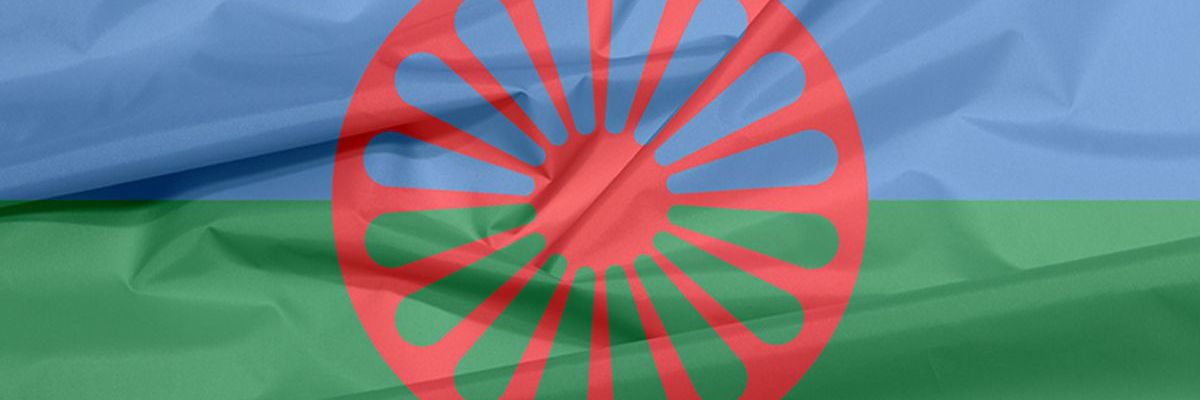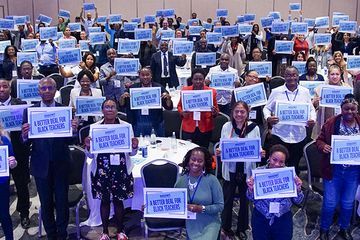With audio generated using AI technology
Children and young people from Gypsy, Roma, Traveller, Showmen and Boaters (GRTSB) communities are most likely to be excluded from school and least likely to gain formal qualifications.
A coalition of educators, charities and campaigning organisations are working together to improve the experiences of GRTSB pupils and are encouraging more teachers and school leaders to join them.
St Teresa’s Catholic Primary School in Darlington is proof that with support, imagination and compassion, GRTSB pupils can thrive and achieve in education.
Over a quarter of the pupils at the school are from GRTSB communities and the school was the first in the country to sign up to the GRTSB Schools Pledge, a commitment to supporting access, retention and improved outcomes for GRTSB pupils.
With a strong reputation for good practice in promoting inclusion in education, headteacher Paula Strachan has led staff in fostering close links with the local GRTSB community and in ensuring that all aspects of the school’s daily practices and systems are inclusive of the needs and experiences of GRTSB pupils and their families.
This includes running workshops with Richard O’Neill, a children’s author who is a Romany Gypsy, bespoke careers education, visits to the local secondary school to help tackle the dropout of GRTSB pupils during the transition to secondary education and a clear zero tolerance policy for any racist language.
Describing discrimination and prejudice against GRTSB communities as “the last socially acceptable form of racism”, Paula believes that the schools pledge is a valuable tool for all schools in ensuring they are safe, welcoming spaces where every child can achieve their best.
It is free for schools to sign up to the pledge and schools are asked to agree to make a series of commitments which include monitoring the progress and outcomes of GRTSB pupils, recognising and celebrating GRTSB culture, outreach with the GRTSB community and training staff in recognising the barriers GRTSB pupils face in accessing education.
In return for signing up to the pledge, schools can then access ongoing training, advice, resources and the support of experts working in the field of GRTSB inclusion, including St Teresa’s and charities working with the GRTSB population, such as Friends, Families and Travellers (FFT).
Having access to this support network is key in giving teachers and leaders confidence to meet the needs of GRTSB pupils, Paula argues: “Some colleagues are quite apprehensive about what differences these children might bring or what they might need, so being able to ring another colleague and ask a question without judgement is really important.”
Both Paula and Emma Nuttall of FFT are keen to encourage even schools that do not think they have any GRTSB pupils to sign up, with Emma pointing out that the high level of prejudice facing GRTSB communities means that many young people hide their ethnicity.
“So far, the schools that have signed up to the pledge have quite high GRTSB populations, but this does not need to be the case because a GRTSB pupil could attend the school at any time. A lot of GRTSB pupils hide their ethnicity due to the prejudice and discrimination they face so a lot of schools don’t think they have any GRTSB pupils, but they may have significant numbers and not realise.”
The work put in by Paula and her colleagues has resulted in an increase in the number of GRTSB families choosing to send their children to her school: “Eight years ago, 16% of our pupils were from GRTSB communities and now it is 26% because parents will send their children to a school where they know they are valued.”
This sense of belonging and safety underpins the ethos of the schools pledge, as Emma explains: “Our aspiration is that GRTSB pupils can have a happy and successful experience in school, that they make friends and learn, thrive and achieve everything they want to achieve without prejudice or low expectations or any barriers getting in the way to their full achievement.”
To find out more about the Schools Pledge, visit GTRSB Pledge for Schools or email Carol Rogers, academic lead for the School Pledge, at [email protected].
GRTSB pupils - the facts
GRTSB pupils have the lowest educational attainment out of any ethnic minority group and the highest exclusion rate. They experience high levels of racist bullying.
GRTSB pupils are almost four times as likely to be permanently excluded and around six times as likely to score below grade 5 in English or maths as white British pupils.
Steps schools and teachers can take to support GRTSB pupils
-
Monitor the educational outcomes of GRTSB pupils at every key stage.
-
Record any staff and pupils to challenge derogatory language or bullying of GRTSB communities.
-
Use GRTSB-inclusive resources such as books, films and plays. A list of resources can be found at Teaching Resources page.
-
Invite GRTSB parents and organisations to do assemblies and lessons about their culture and communities.
-
Have cultural awareness training for teachers. Find out more about the Anti-Bullying Alliance’s work at the Gypsy Roma and Traveller Anti-bullying Project website.
-
Celebrate GRT History Month in June and having GRTSB history and experiences on the curriculum.
-
Marking the Roma experience of the Holocaust on Holocaust Memorial Day.
-
Make sure school systems and information is inclusive-digital exclusion rates can be higher among GRTSB communities.
-
Make sure admission policies do not discriminate against GRTSB families.





